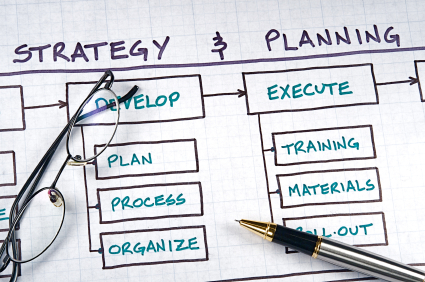
Your resume is your marketing tool for success. You need to be able to advertise your skills and ability to succeed with your prospective employer. The format and feel of your resume can either open doors or close them, often this feeling can make people question why they didn’t get the interview or thinking they are not qualified.
The resume that lands you the job interview isn’t a simple listing of your past duties or work experience. It has to convince readers that you have the required skills and abilities to exceed the expectations of the position, so your resume should be structured in a way that arouses employers interest in you and gives them reasons as to why you are more qualified than others, while encouraging the employer to get in touch with you for an interview.
Most people do not realize that employers will do a quick scan of a resume, it typically lasts only a few seconds. They’re looking for key skills and accomplishments that the perfect candidate will have. So capturing the employers attention is critical or else you’re information can get lost in the shuffle.
To prevent your resume from ending up in the “Trash” file, here are some helpful resume tips that will set you apart from the rest.
1. Review the job posting and description carefully
A lot of the time, job-hunters will write one generic resume and send the same generic resume to every employer. This is one of the biggest mistakes facing job seekers because it produces so-so resumes that don’t necessarily match the employers requirements.
You need to highlight your appropriate skills for that job. Reviewing the job requirements is a great way to tailor-make your resume contents to the employers needs.
2. Know the difference in resumes
There are two main types of resumes: chronological resumes and functional resumes. Chronological resumes coordinate your past job experience and place emphasis on your experiences that apply to that field.
Functional resumes are good when you have little to zero work experience (or new grads). This type of resume allows you to showcase skills that fit in with the job requirements. Fair warning: most recruiters and hiring managers don’t like this format and feel as though you may be “hiding” something.
If you have a chronological resume, you do not want to have one part chronological and one part functional, because it will throw off the entire formatting and may confuse the employer about your skill set.
3. Focusing on accomplishments
Focusing on what you have accomplished will help to set you apart from your peers. You should highlight the value you’ve brought to companies and the success that they have seen while you are there. Companies are looking for game-changers, they want 5 star recruits, not 2 star players who are not up to the challenge. You have to make yourself into a 5-star recruit, you cannot rest on your laurels and hope for the best. Spotlighting your success will show potential employers that you are capable of outperforming your peers.
Trends Job Seekers Should Look for in 2011 (trends/tools/hiring practices)
Career CollectiveJob Search
**I am a member of the Career Collective, a group of resume writers and career coaches. Each month, all members discuss a certain topic. This month, we are talking about trends for 2011. Please follow our tweets on Twitter #careercollective. You can also view the other member’s interesting posts at the end of the article.
It may not seem like it but the recession seems to be tailing off. More people are willing to spend money, so lending has returned to a degree. But that doesn’t mean anything if you’re one of the ones without a job. 2011 is shaping up to be a great year for job seekers, especially if you are filling a critical need job. Sure there is high unemployment still but that does not mean that you cannot make something happen in the New Year. Having a positive attitude and staying abreast of the trends will put you in the running to find that job you want.
But, what are some of the trends for job seekers in 2011? There are a few different things to pay attention to, that are just over the horizon.
The Outlook:
Job growth is expected to be faster than average, thanks to growing demand for service sector jobs, the looming retirement of aging baby boomers, and broad efforts to create job growth. The volume of jobs is expected to increase throughout 2011, and rates are expected to continue through 2018, which are some of the fastest occupational growth rates being projected by the Labor Department.
Money:
Lending is expected to follow along current levels with some increase in lending to well-qualified applicants. But, lending can be a good thing in this economy, with more money changing hands there are more opportunities for job growth. Keep an eye out to see how the market affects your potential career field choice.
Upward Mobility:
If you want you can choose to go for additional schooling. Some jobs offer postgraduate programs for specialties in certain fields. It helps to be able to showcase strong educational history on your resume. As more people enter the workforce, employers can have the cream of the crop, so it creates incentives for potential employees to build their resume. Postgraduate work is a great thing to showcase on a resume and it can help set you apart from other potential job seekers.
Hiring Tools:
Employers are worried about salaries and specifically new salaries. In 2011 the trend is to develop talent from within, instead of spending the time to evaluate and train an outside employee. More employers are looking to promote from within. This is obviously not something that job seekers want to hear in 2011, but just focus on showcasing your skills and building your resume, and you will be on to your future job.
Job Types:
Expect a lot of graveyard shifts, weekend work and holiday work. Employers know that they have their employees in a tight spot and they are going to work their employees into the ground. Do not expect much help in the way of increased pay for this type of work. Profits are high for the top, not for the people doing the actual work.
+++
Read below for more tidbits and wisdom from some of our industry’s top career professionals:
Social Media Recruiting to Grow Further in 2011, @debrawheatman
Another Year, Another Job Search Begins, @GayleHoward
In 2011, Increase Your Prospects With Better Differentiation, @WalterAkana
4 Lessons Learned From Job Search in 2010, @Careersherpa
Your Career Action Plan for the New Year, @KatCareerGal
Trends Job Seekers Should Look For in 2011, @erinkennedycprw
Things Every Job Seeker Should be Thinking About in 2011, @expatcoachmegan
Let your presence be known or send out a red flag, @MartinBuckland @EliteResumes
How to find a job in 2011: Pay attention to emotional intelligence, @Keppie_Careers
2011 Employment Trends Supercharged with Twitter, @KCCareerCoach
3 Traits for Facing Weather, Employment and Chronic Illness, @WorkWithIllness
Everything old is new again @DawnBugni
Career Trend 2011: Accountability + Possibility = Sustainability, @ValueIntoWords
Career Tools to Check Out in 2011, @barbarasafani
What Was in 2010, What To Expect in 2011, @chandlee
The Future of Job Search: 3 Predictions and 2 Wishes, @JobHuntOrg
Cover Letters: Are They Needed Anymore?
Career & WorkplaceCover LettersExecutive ResumesJob SearchProfessional ResumesResume KeywordsResume Writing
Contrary to the occasional rant about them, cover letters never go out of style. In fact, they should be considered one of the most important elements of the job seeking process. Unlike the resume, a rather cut and dried dissertation on your experience and training, the cover letter is your chance to convey more than simple experience. Understanding the important areas that need to be covered in a cover letter and the importance of creating unique letters for specific positions will allow you to take advantage of the strengths of the cover letter.
Length Matters
First, recognize the importance of appropriate formatting. Cover letters that are too long will quickly loose the interest of the reader while those that are too short will not convey the necessary information. Instead, be cognizant of the length and format of each cover letter. Each cover letter should be no less than three paragraphs long and no more than one page long. Not only is this length considered correct, it will allow you to appropriately address important areas adequately.
It Isn’t Your Resume
It is a mistake to simply use the cover letter to restate the facts that appear on a resume. Instead, the cover letter should be used to build interest–telling a little more about yourself and what you bring to the reader. An effective way to build interest is by expounding on an accomplishment that can be found in your resume. Instead of simply restating the accomplishment, give the prospective employer more details – details that will build interest in you.
Be Specific
Many make the mistake of creating a generalized cover letter. Addressing a cover letter to the HR Department, utilizing generic job names and including general examples is a patently bad idea. Instead, take the time and do some research. Even if you are sending a resume and cover letter to be filed for a later position, it is critical that it be addressed to the specific person in charge of hiring for that position. Each resume that is sent out should include a cover letter that is specific for a particular job offering.
What’s Next
When concluding your cover letter, be sure to include your next step. You may want to inform the reader that you will call to confirm receipt in a week or let them know you will call to ensure they have all the information they need. Including a follow up action is the best way to ensure that your resume will be flagged for follow-up by the reader.
Cover letters are a good idea almost any time you are submitting your resume for review. There are a few distinct cases when a cover letter is not required.
- When the potential employer requests no cover letter be sent.
- When working with a headhunter.
- When using resumes at a job fair.
It is important that each cover letter be written with a specific job in mind. Carefully read and review not only job postings, but also any information that is available regarding the company to which you are applying. Doing so will allow you to craft a more effective cover letter – one that is more likely to generate a call back. You can tweak your main cover letter for different positions. Be sure and save each version with a different title so you can easily pull it up when a similar job position opens up.

How many times have you found yourself in this situation: several days prior, you had an interview. It seemed to go well and the interviewer informed you that they would ‘get back to you.’ You went home, excited, but as the days passed with no call, you begin to question every aspect of the interviewing, wondering where you went wrong.
This happens more often than many HR professionals would like. Relax. Sometimes a busy schedule of interviews and work sometimes gets in the way of them calling you back. Learning techniques aimed at discovering how to make employers call you back is an easy and beneficial addition to any job seekers trunk of tricks.
- Don’t Expect It: Don’t ever assume that you will get a call back. Instead, make it a point to discuss the point of next contact before finishing the interview, meeting or phone call. This can be as simple as asking when an appropriate time would be for you to follow up. Many job seekers are leery of this, feeling that it will make them appear pushy; however, politely asking for a follow up isn’t being pushy. I think it shows motivation and Always ask for a follow up. Never leave it to chance.
- You Are Responsible: At the end of the day, you, as the job seeker, are the one responsible for the follow up, after all, it is you that wants the position. Take responsibility for the part you play in follow up meetings and calls by asking for them, being polite is subsequent contact and following through on any promises you make.
- “I’ll Get Back To You” isn’t enough: “I’ll get back to you’ may be the five most dreaded words in the job seeking business. Don’t ever leave a meeting or interview on this note. If a potential employer uses this line, ask them when! If they cannot provide you with a specific time frame for a follow up, ask when it would be appropriate to follow up yourself. Again, don’t be afraid to schedule your follow up.
- Keep Calling: If you were unable, or afraid, to schedule a follow-up, wait three days and follow-up yourself. Again, many job seekers shy away from this tactic, but remember that the interviewer or HR manager is busy as well and a gentle reminder is not harmful. Be respectful whenever leaving a message and always be consistent.
Getting that all-important call back can be difficult and waiting for it can be even worse. Instead of leaving it up to fate, take matters into your own hands. Be proactive by scheduling follow-ups. Be polite, but assertive, when asking for a follow-up call or meeting. Don’t ever be afraid to follow-up yourself.
Waiting is an unfortunate part of finding employment. If you are like me, waiting for anything can be excruciating. You can make this waiting a bit easier to endure by learning how to make an employer call you back. The peace of mind a scheduled follow-up can give you will make the waiting game much easier.

**I am a member of the Career Collective, a group of resume writers and career coaches. Each month, all members discuss a certain topic. This month, we are talking about “scary” career or resume mistakes. Please follow our tweets on Twitter #careercollective. You can also view the other member’s interesting posts at the end of the article.
+++
Executive or senior level positions are a different animal when compared to others. More than a simple experience, those applying for senior or executive positions have to be better, faster and more creative than the competition. Even the smallest of errors can quickly become roadblocks to future success. Understanding how to avoid scary resume mistakes is critical for those that hope to land a plum position.
Luckily, the scariest of these mistakes are also the easiest to avoid…if you simply know what you are looking for.
- Grammar: Sounds simple, but grammar and spelling errors can be the worst resume mistake. Poorly written resumes do not advertise the applicant as a qualified individual; instead, they advertise you as lazy, unobservant and possibly illiterate. This mistake is the easiest of all to avoid. Do not rely on spell check alone; instead ask a qualified friend or professional to review the resume for you as well.
- Poorly written objectives/career summaries: The career summary portion of a resume is often easy to overlook. Job seekers erroneously assume that those reading the resumes often ignore the section. Instead, the summary is your first and best chance to not only state your objective, but to add a sense of whom you are. Avoiding a poorly written career summary starts with putting in the appropriate amount of time writing it. Remain clear and focused on what you want to do, what you excel at, and what you can do for the reader. It is also a good idea to personalize summaries for specific jobs or positions.
- Hiding crucial information: Functional resumes sometimes seem like they are hiding information about the job seeker’s accomplishments and skill sets by ignoring the standard chronological format. If functional is still your choice, consider creating a hybrid functional/chronological resume that will please all types of readers.
- Being too general: Creating a generalized resume to use for every new opportunity is a mistake. Today, a general resume isn’t enough. Instead, develop a well written, grammatically correct base resume and personalize it for each new position. Carefully tweaking skills, highlighting different accomplishments and other critical areas more maximum impact is the best way to optimize your exposure to specific potential employers.
- Honest and Accuracy: “Everyone embellishes their resumes a little bit – right?” While that may be true for some people, inaccurate statements or outright wrong information is a mistake and not smart to do. Today’s employers are choosing from a pool of potential employees that is bigger than ever. Be sure that the information contained in your resume is accurate. Be honest and forthright in your answers. Honesty does matter. Don’t be one of the fools who use embellishment to make their resume stand out—and then get caught later.
Creating resumes that make an impact doesn’t have to be difficult. Spending adequate time, making use of a proofreader, being honest and carefully choosing your format and the information you present is the best way to avoid scary resume or career mistakes.
++++++++++
Read below for more resume and career advice from the Career Collective!
Where Are the Wild Things, Anyway?, @WorkWithIllness
Is Your Job Search Making You Feel Like a Smashed Pumpkin?, @DebraWheatman
Hiding in Plain Sight, @WalterAkana,
Don’t make these frightful resume mistakes, @LaurieBerenson
How Not to Be a Spooky Job Seeker, @heathermundell
A Tombstone Resume:Eulogizing Your Experience, @GayleHoward
The Top Ten Scary Things Job Seekers Do, @barbarasafani
Oh, Job Search Isn’t Like Trick or Treating?, @careersherpa
A Most Unfortunate Resume Mistake No One Will Tell You, @chandlee
Oh no. Not the phone!, @DawnBugni
Halloween Caution: Job Seeker Horror, @resumeservice
Boo! Are you scaring away opportunities or the competition? @MartinBuckland @EliteResumes
Your Career Brand: A Scary Trick or an Appealing Treat?, @KCCareerCoach
How to avoid mistakes on your resume, @Keppie_Careers
Sc-sc-scary Resume Mistakes, @erinkennedycprw
A Flawed Resume is a Scary Prospect, @KatCareerGal
Job Search Angst: Like Clouds Mounting Before a Storm, @ValueIntoWords
Does Your Career Costume Fit You?, @expatcoachmegan
For those of you who have talked to me, you know that I unabashedly love LinkedIn. As social networking goes for professionals, it’s my favorite. LinkedIn has a much cleaner interface than other sites such as MySpace, Plaxo or Facebook. Setting up a profile on LinkedIn can put your name at the top of the Google search rankings and can help you get connected and ‘be found’ in ways you might not have imagined.
LinkedIn is one of the best social networking sites to help you increase your online visibility. Because of its popularity among millions of people, the site has gained a significant presence in Google page rankings. Typically this means that when people search for your name specifically, they can find your LinkedIn profile as one of the first results. If you have a particularly common name, like mine, there are a couple of ways to help further boost your profile in Google searches. Specifically, you should include your LinkedIn profile link in each signature you use from discussion boards to blogs to other social networking sites. You can also use your actual name in the URL you select for your profile. Or, you can differentiate yourself by what you do. My LinkedIn name is: erinkennedycprw. The “cprw” stands for Certified Professional Resume Writer and also sets me apart from the other 212 Erin Kennedy’s. Ideally, for SEO purposes, you really want to have just your name, but if it is already taken, like mine was, you have to figure out something else that will work for you.
Once you have built your profile and included your job history and experience, you can start networking. Chances are that you will find many of your colleagues, classmates, and former university instructors. You can even branch out to the people who are connected to those in your existing network. For example, if you live in Austin and your spouse’s job is requiring that you relocate to Denver, you might not have contacts there. In this case, you can tap into your network to see with whom they’re connected. Chances are that somewhere among your connections, you’ll find someone who lives and works in Denver to forward your resume.
The most important aspect of networking on LinkedIn is building that network well before you need it. Usually, the “pay it forward” concept works here – give out help before you need it yourself. Always make yourself available for LinkedIn recommendations as well as a good word toward HR when a contact wants to apply for a job at your company. By doing this, you highly increase your chances of getting your own recommendations when you need them.
There is another way to use LinkedIn to your advantage. If you know your interviewer’s name in advance, you can look up his or her profile to get an idea of what to talk about during the interview. If you find something that the two of you have in common, such as the same university or previous job, you can bring it up during the interview. However, this should be done carefully. Only you can determine whether the tone of the interview is somewhat light or very strict. While talking about the things you have in common can help set a lighter tone, this tactic should be approached with caution.
Learning the basics of how to use LinkedIn for networking will help you maximize your networking potential. When you make yourself more visible in Google, make connections with your contacts’ networks and use LinkedIn for research, you can find your way to the next big opportunity.
How Companies Use Recruiters (and what that means for you!)
Career & WorkplaceInterviewingJob Search
Occasionally I get asked about recruiters, if the client should use one, how companies find them, and what recruiters do for companies. So here is a little article on what recruiters are about.
Making the best use of recruiters is something that almost all major corporations do now. Taking advantage of someone that is trained to sort through people means less hassle for the company—and why not? Less hassle means fewer headaches for those businesses.
Recruiters are people who have been trained specifically to hunt for various corporations to fill empty positions. They place ads in newspapers, online and in magazines to get the attention of any individual that might qualify for a job opening that they might have.
Taking the time to find recruiters who know what they are doing is the first important step for a company. Without excellent recruiters, corporations likely will not end up with the type of people that they want working for them.
Finding the best use of recruiters is up to the corporations that employ them, however, companies need to pick and choose where the need is for new hires in particular. In other words, will the corporation be expanding in Asia and the Western United States? If so, recruiters look for individuals who might have the ability to speak Japanese or Chinese, or are bi-lingual/fluent in other languages.
Another possibility would be if a company has decided to open a whole different operation. For example, Company A typically has been a restaurant chain. Now Company A wants to start some retail stores, and has the means to do it. Using a business plan, Company A will make the best use of recruiters by sending them out in whatever area it defines to find candidates to interview. Company A will have certain guidelines for the recruiters to go by, but the recruiters will pick the potential candidates.
Once the potential candidates are picked, recruiters will typically thin out the crowd somewhat before sending the candidates in for an interview. Recruiters take the time to sit and talk to each candidate for several minutes and are usually tuned in well enough to people that they can spot instantly who would work for the job, and who wouldn’t.
When you have recruiters who are available, it makes life much easier for the corporation. It is one less step that the Human Resources Department has to be concerned with. When there are so many other things that HR people have to do, using recruiters makes their job easier. For large corporations, making use of recruiters on a regular basis is a great benefit and saves them plenty of money. Smaller corporations on the other hand, may not see a benefit except once in a while—perhaps when searching for a new Chief Executive Officer or other high-ranking position.
So here is your little lesson on how recruiters help companies and what that means for you!
 The current state of the economy and the job market has made it almost impossible to find a job. If you want to be one of the “chosen” to land an interview, you must be at the top of your game. No longer is it enough to simply appear at an interview dressed in a suit and armed with a positive attitude. Today’s candidates must be thoroughly prepared for each interview they attend. An important component of that preparation is knowing the ten things you should always bring with you to an interview.
The current state of the economy and the job market has made it almost impossible to find a job. If you want to be one of the “chosen” to land an interview, you must be at the top of your game. No longer is it enough to simply appear at an interview dressed in a suit and armed with a positive attitude. Today’s candidates must be thoroughly prepared for each interview they attend. An important component of that preparation is knowing the ten things you should always bring with you to an interview.
- Five copies of your resume – even if you have submitted your resume electronically, it is still important to bring along hard copies. In many cases, candidates will find themselves interviewed by multiple managers, so it is always important to have enough resumes to go around.
- Professional references – be sure to bring a list of 3-5 professional references. Include each reference’s contact information including email address as well as the capacity by which they know you.
- Personal references – more and more companies are turning to personal references to round out the interview process, so bring a list of personal references as well. Phone numbers, email address and relationship should be carefully noted for each reference.
- Work History – keep a list of your previous employers including physical address, phone number, employment dates and manager names. Being unable to provide this information is unprofessional and may raise an eyebrow or two.
- Education – bring a list of each school you attended, the address and the degree, or program studied.
- Skills – As technology continues to evolve, many potential employers are interested in what programs candidates have mastered. You should also include any specialized skills or equipment you can operate
- Questions – almost all hiring managers will end the interview by asking if the candidate has any questions – prepare a list in advance. It is a great idea to do this by carefully reviewing the company website. The questions should be thought provoking and relevant.
- Documentation – Bring along any professional certifications as well as a valid driver’s license and social security card. In the event that the position is immediately offered to you, you will have all of the information needed with you.
- Samples – Many jobs require a candidate to provide samples of their work. Be sure to bring along representations of your best work. This applies to almost all jobs. For example, an architect may bring along samples of their designs while a teacher might bring lesson plans or an example of a teaching plan.
- Attitude – never underestimate the power of your attitude – remember you are selling yourself, so it is crucial you come prepared to do just that. Be well rested and eat shortly before your interview.
Being adequately prepared for an interview is the first step towards has a successful session. Be sure to prepare your interview items in advance so you are not rushing around trying to locate everything right before your interview.
